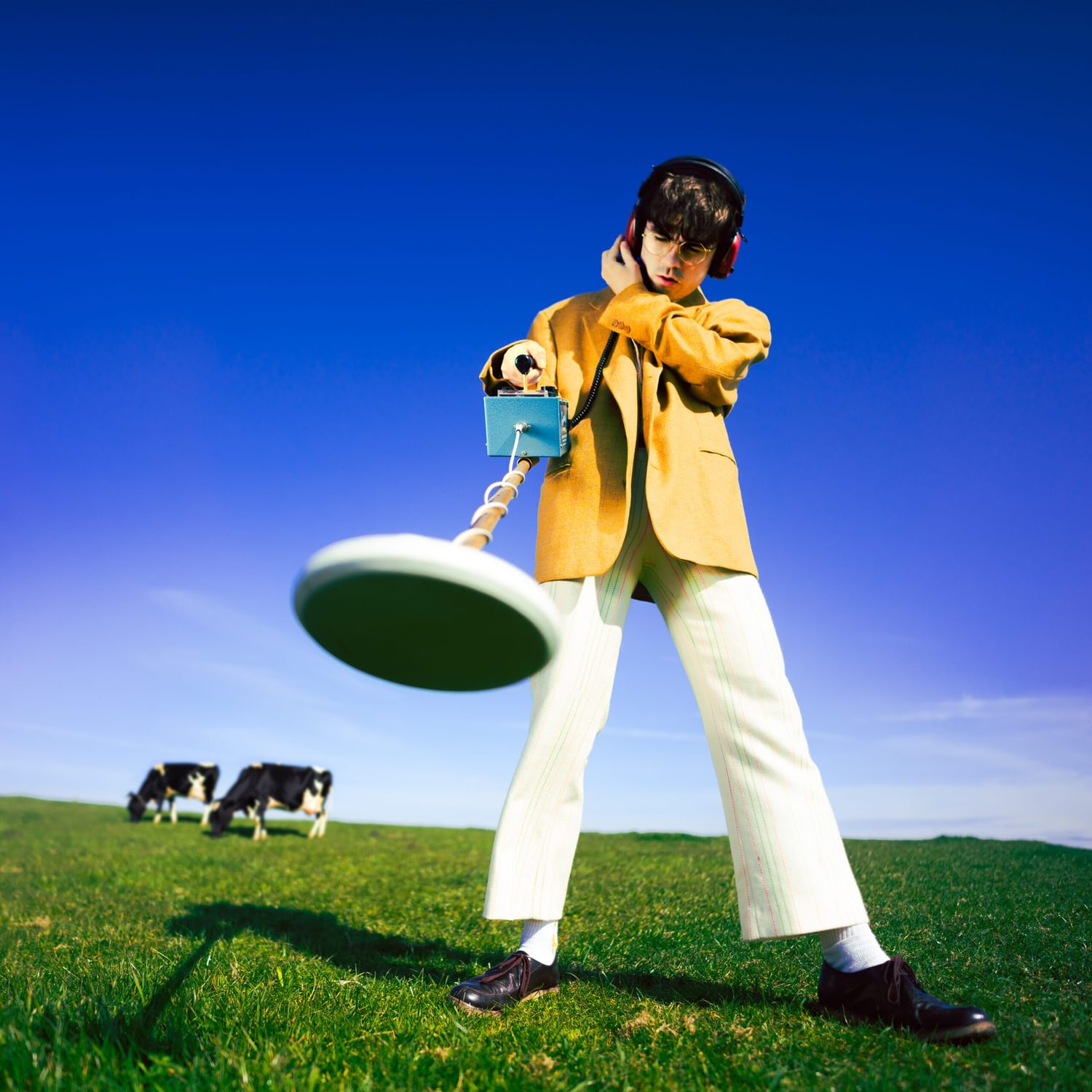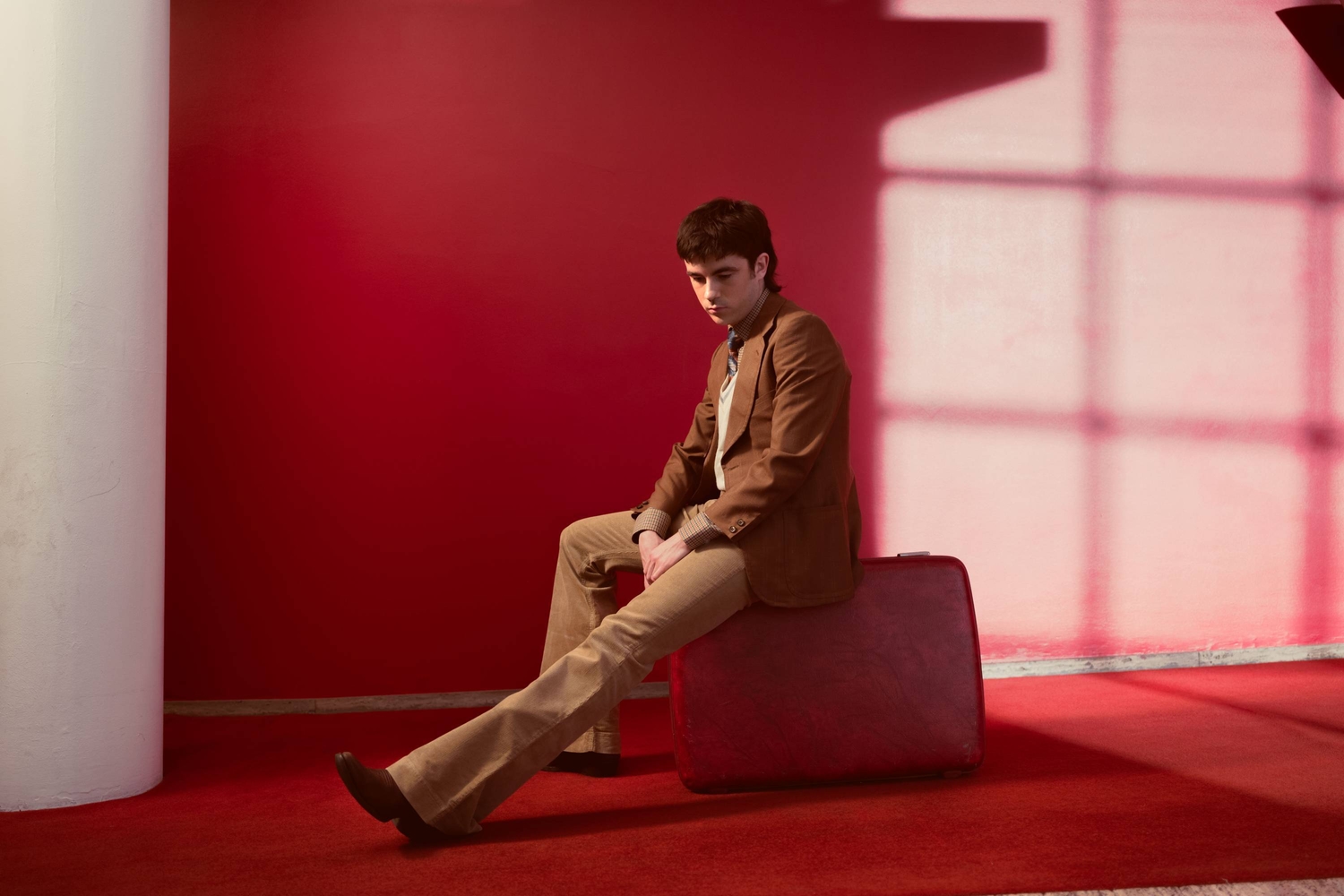
Declan McKenna: Beach Boy
With his alt-popstar status firmly cemented, Declan McKenna is spending the next portion of his career bending the term to his own shape. Third album ‘What Happened To The Beach?’ finds the 25-year-old enjoying “creative spontaneity” and a deserved chunk of self-belief.
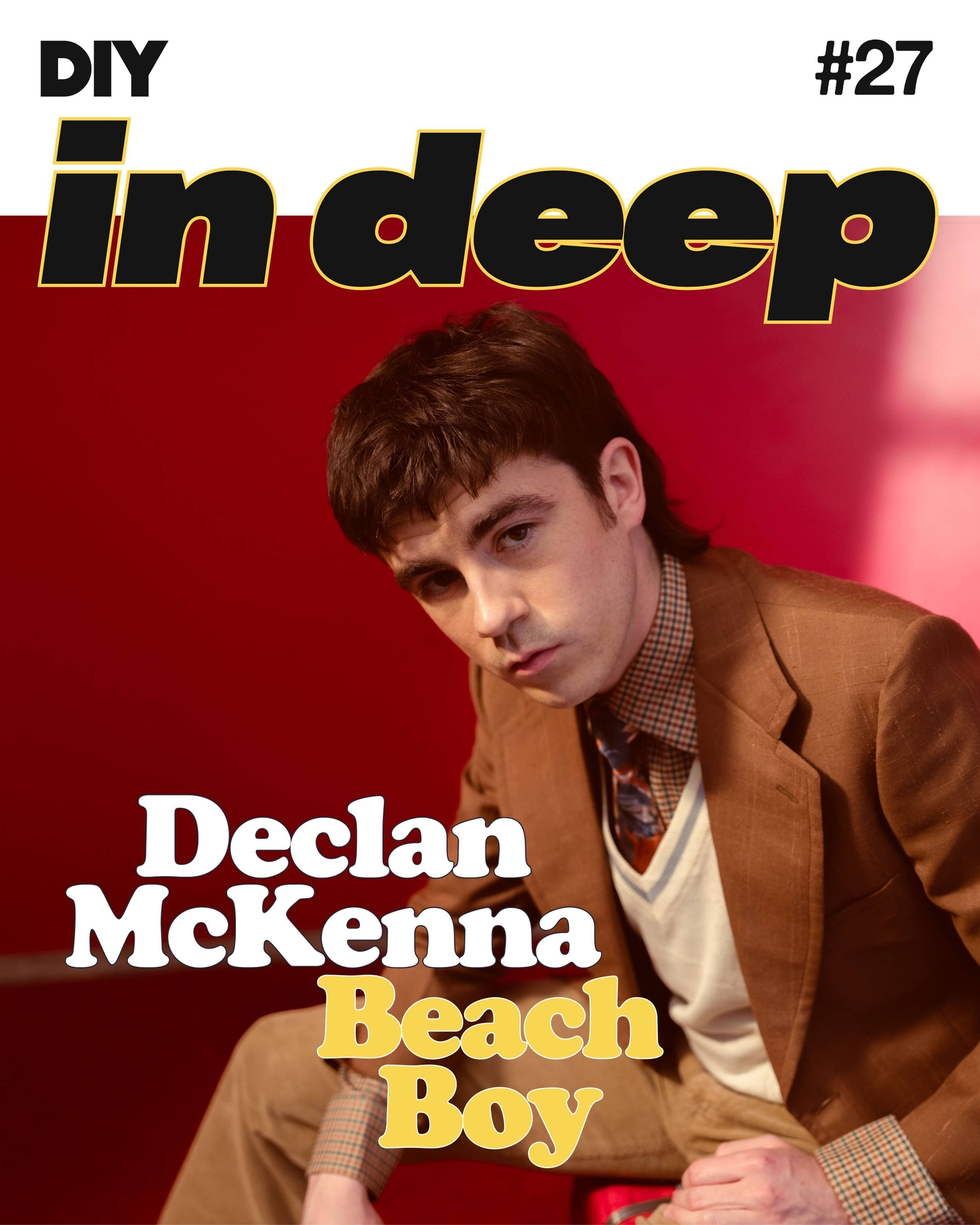
Protest songs about dodgy men in power are rarely the material of giddy, feverishly-received Reading Festival sets, but try telling that to Declan McKenna’s many, many fans. If you didn’t catch that show last August, you can get a taste of it on TikTok, where there are videos of screaming teenagers pogoing to his anthemic 2015 breakthrough hit ‘Brazil’ - written after football gatekeepers FIFA controversially awarded the 2014 World Cup to a country mired in poverty. After going viral on the platform in 2022, ‘Brazil’ hurtled into the UK singles chart; now, it’s approaching half a billion Spotify streams globally.
At Reading, Declan drew a rapturous response from the moment he walked on waving an old metal detector. Yes, it looked a bit random, but it was actually a quirky nod to the visual world he was already building for his third studio album ‘What Happened to the Beach?’, which dropped earlier this month, sporting a metal detector on its cover. Dressed in a natty mismatched suit and bright yellow tie, the 25-year-old looked every inch the stylish alternative pop star, and performed like one too - taking to Reading’s main stage like a duck (or perhaps a seagull, another ‘…Beach?’ motif) to water.
Given how poised he appears on stage, it’s a slight surprise to hear Declan say that he finds “big gigs like Reading the least enjoyable” to play. “Because they’re so built up, I can never fully enjoy it in the moment,” he admits. “You want to interact with the crowd, but at the same time, you don’t want to be controlled too much by what’s going on out there.” It’s only later, when he sees videos of himself on stage, that he thinks: “Shit.” As in, “Shit, that was BIG…”
Throughout today’s hour-long interview, Declan is thoughtful and self-assured without taking himself too seriously. Journalists have been calling him “wise beyond his years” since he broke through with ‘Brazil’ and his excellent debut album, 2018’s ‘What Do You Think About the Car?’, which came out when he was just 18. But it’s fair to say Declan wears his success lightly.
At this point, with two hit albums to his name (2020’s second LP ‘Zeros’ narrowly missed out on the top spot, landing at Number Two) and a third dropping, does he feel like a pop star? “Like, I try to embody that a bit with my performance,” he says. “I think if you’re a performer, you have to be a little bit larger than life. It’s an extension of yourself at the end of the day, but you’re there to put on a show. So there is something to [be said for] buying into your own mythology in that moment. But outside of that, I wouldn’t say I feel like a pop star.”
Declan isn’t the kind of artist who gives snappy, pat answers, so he allows himself to flesh out this thought. “I don’t know if it registers with me the way it does to some people,” he continues. “It’s very different depending on where I am. Sometimes you feel a bit overwhelmed. Like, ‘I feel like everyone’s looking at me’.” He lets out a self-deprecating laugh. “Then sometimes I feel like no one knows who the fuck I am – I mean, probably both are true,” he shrugs. “But do I feel like a pop star? I guess it must have sunk in a bit at this point, just because of where I’m at with it all.”
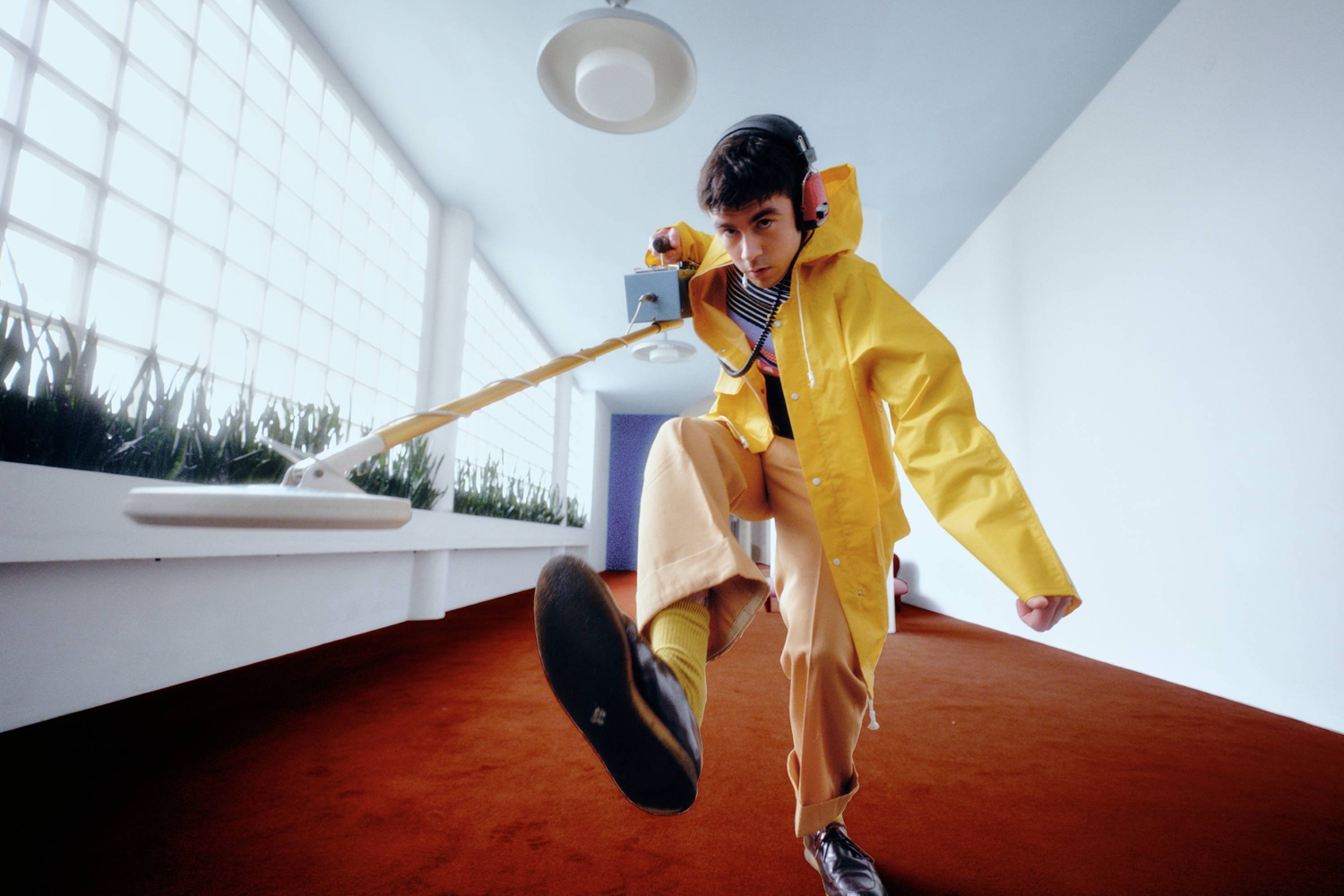
Happily, where Declan is at creatively also seems to suit him down to the ground. 'What Happened to the Beach?' is a dreamier, more offbeat offering than its predecessors: the indie rock of his 2017 debut, and 'Zeros'’ gleaming, glam-inspired follow-up. Recorded in LA with producer Gianluca Buccellati (Arlo Parks, Lana Del Rey), 'What Happened to the Beach?' is filled with sun-dappled psychedelia and unselfconscious playfulness. The weird, woozy 'Mulholland's Dinner and Wine' features the line "Let's take the golf cart into town" because Declan saw "posh couples" doing precisely that in the city. Lead single 'Sympathy', released in July, is a trumpet-driven summer jam with a soothing message: "I can see what you're all about," Declan sings. "You don't need to be clever."
The album title is ambiguous by design. Declan says it "isn't meant to have a specific concept" but is instead conceived as a "creatively spontaneous" body of work. He embraced a more freeform way of working after "diving into making music as a hobby again" during the 2020 lockdowns. "I was just making these fun little ideas that maybe I wouldn't have considered a proper track to begin with," he recalls. But when he flew to LA in early 2022, it all started to click and Declan knew he had the makings of an album – albeit a very different one from the bold, glossy 'Zeros', on which he channelled flamboyant icons like Marc Bolan and David Bowie.
"This album came from a period of time that was like a reset for me," he says. "I sort of gradually opened up to using these ideas that, before, I would have discarded because I'd have been like, 'I don't see how I can make this into a proper song'." Solidified by LA sessions with Buccellati, this slow and steady revelation proved liberating for Declan, who felt he could step away from the "classic songwriting structures" of 'Zeros' and embrace a more abstract, reactive style.
Looking back, what does he think prompted this reset? "If anything," he says, "it's just me having the confidence and having learned enough over the years to know how to execute those slightly more abstract ideas. I didn't feel like I had to prove something before it was done. With previous albums, I've felt like I had to have a song pretty much there – almost in its full form – before going into the studio to record it. But that just wasn't the case on this album."
To begin with, not everyone was totally sold on Declan’s new, more instinctive approach. "It took a bit of almost, you know, standing my ground on the matter – in terms of working with my team, my label, all of that," he admits. "[I was like], 'You have to trust me here. I'm going to do things a bit differently and I'm not going to be able to show you what the end product might be like before it's done'."
Declan says he’s singing about this pushback "to an extent" on 'Nothing Works' - a rambunctious banger on which he grapples with self-doubt and external expectations. "You tell me I don't relate to the kids no more / Now, I feel like I'm letting them down," he sings, presumably alluding to the way he was called "the voice of a generation" early in his career. It was a cliché, but one rooted in truth; the relatable songs on his debut album deftly explored everything from the 2015 Paris terror attacks ('The Kids Don't Wanna Come Home') to the demonisation of trans teenagers ('Paracetamol').
'Nothing Works' was the last song Declan wrote for 'What Happened to the Beach?'. He says it was a key piece of the puzzle because it made him realise his new music was "all a bit different" from his previous output. "Like, 'Is this maybe not the thing that my fans like my music for?'" he adds. "But for me, really, I think the worst thing I can do for my fans is preempt what they want from me. Because at the end of the day, as a music fan [myself], I just want someone to do their own thing and for it to be a real piece of them."
Though 'Nothing Works' is a cautionary tale about the dangers of "worrying about what the audience wants from you", Declan says it has an inherent sense of irony. After all, he sets this message to a stomping indie-rock beat that you can picture fans going wild to at festivals just like Reading. "It was kind of giving my label what they want and not at the same time," he says with a laugh.
Declan is supporting 'What Happened to the Beach?' with a run of intimate in-store gigs followed by much larger shows across the UK and Europe from the end of March. Though the tour includes his biggest ever headline date - a none-too-shabby turn at London's 10,000-capacity Alexandra Palace on 12th April - Declan says he no longer sets big goals for himself. "When I think about stuff like that, I'm like, 'I've kind of already done a lot of it’," he says, laughing at the grandness of this statement. "Like, when I thought about myself perhaps being a successful artist a few years ago, [the goal would be] to play at Brixton Academy." He filled the iconic south London venue twice on his 'Zeros' tour in 2021. "There's not really goals in that way now," he notes. "I'm just very happy with the point I've got to, having this as my third album. [Being] 25 feels like a very good place to be."
This doesn't mean Declan lacks ambition now – just that he’s hit reset again. "If there's any goal, it's in producing records and working on my own studio space," he continues. "It feels like I'm getting to a point where I have a little bit more confidence with just being able to finish music, whether it's my own or someone else's." He also wants to find "a more sustainable way" of navigating his career. "You go from touring to, like, 'Where's the new music?'" he says. "And then it's like, 'I haven't got any yet because I've been on tour. Shit. I need to get going again'..."
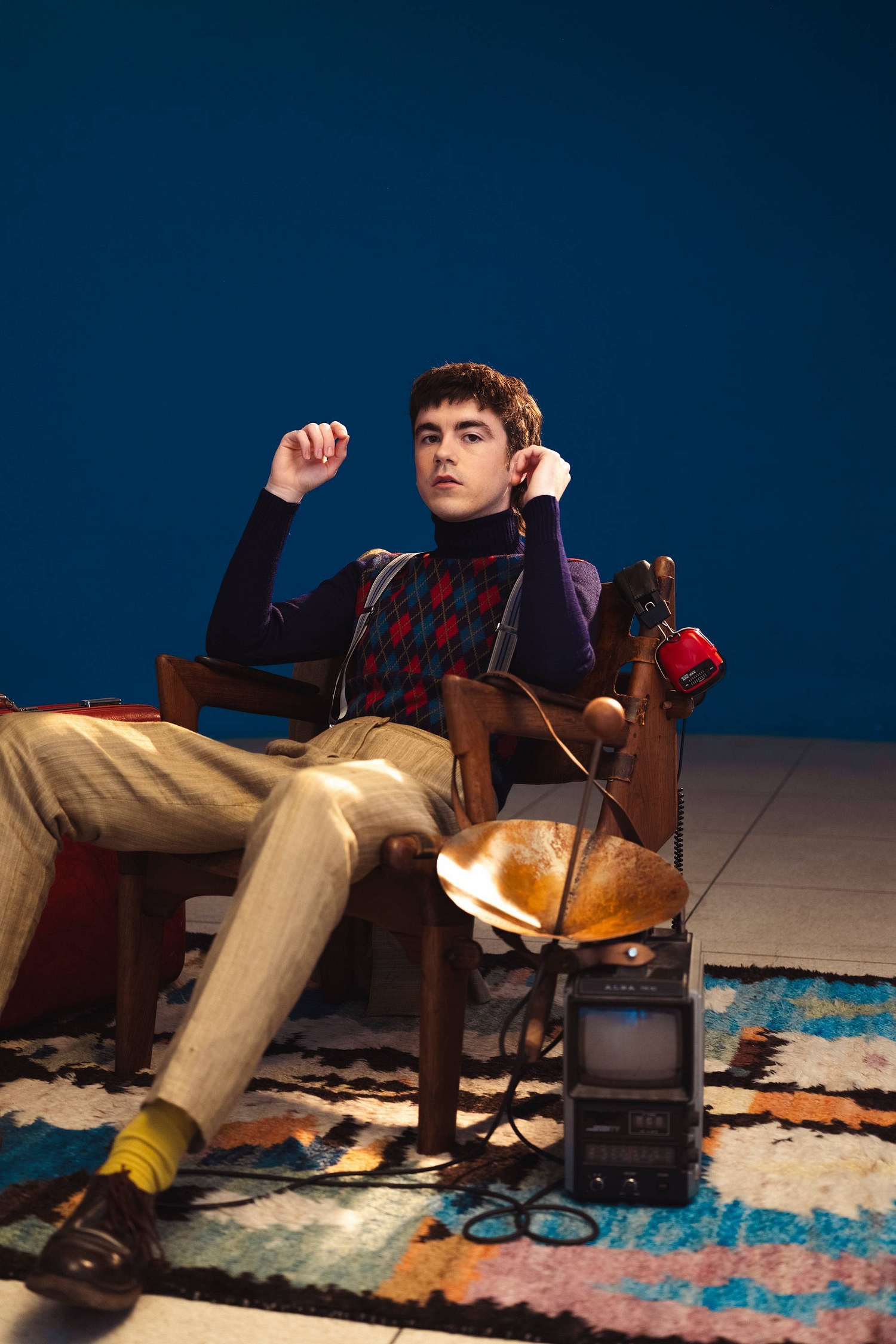
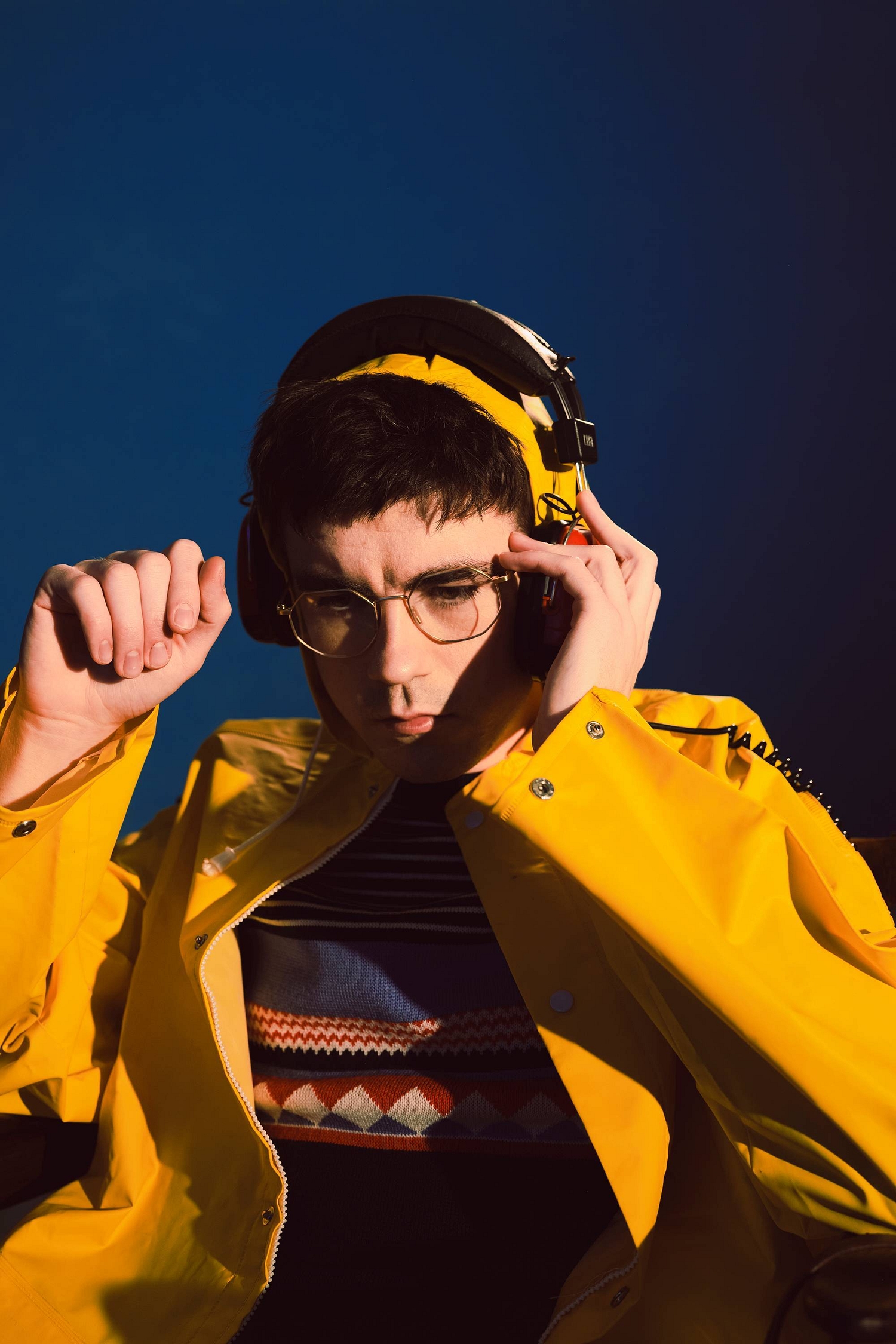
Declan was born in Enfield, an outer borough of north London, and grew up in neighbouring Hertfordshire. You'll see signs saying ‘HERTFORDSHIRE MASSIVE’ at his gigs. Like many suburban kids, he gravitated to the city when he left home, but he's since moved to Brighton for a quieter life. "It was a bit of an escape," he says today. "I have a nice small group of friends there and I can walk everywhere. Any place I lived in London, I always found myself being pulled around town, getting the tube all the time. It wears you down a bit." So, what does he do on a day off in Brighton? "To be honest, I'll probably end up doing something instead of taking it easy. But one thing I do is play a lot of football – five-a-side," he says. "I used to do running and stuff when I was younger, but I don't have the focus for it these days. I prefer just to play football."
You might also spot Declan cycling along the Brighton seafront – weather permitting, because he's learned the hard way that the sea breeze can soon turn menacing. "It's the only straight cycling route but it gets so, so windy," he chuckles. "I remember being on my little fold-up bike in a big coat and it acting like a fucking parachute! I wasn't moving an inch so I was like, 'Fuck this, I'm going home!'" Brighton may offer respite from London, but for Declan, it's still not a place that lends itself to post-tour R&R. "I don't find it easy to unwind at all – unless I'm on a holiday somewhere really nice," he says. "I could relax in Australia, in 35-degree heat."
However, even though he hasn’t quite mastered the art of relaxation, Declan is clearly much more comfortable in his skin than when he broke through with 'Brazil'. "I take inspiration from my younger self in the way I make music now. I try not to be anything or do anything in a certain way," he says. "But I mean, my 15-year-old self was just a completely different person." He laughs and grimaces a bit, then continues: "I can't even begin to describe the level of chaos [back at the start]. I don't think I really understood myself emotionally, as you don't at that age. I was trying to make friends constantly and sort of always on the move." Does his life feel chaos-free now? "Oh no, there's definitely still some chaos there," he replies. "But honestly, nothing like THAT."
‘What Happened To The Beach?’ is out now via Columbia Records.
